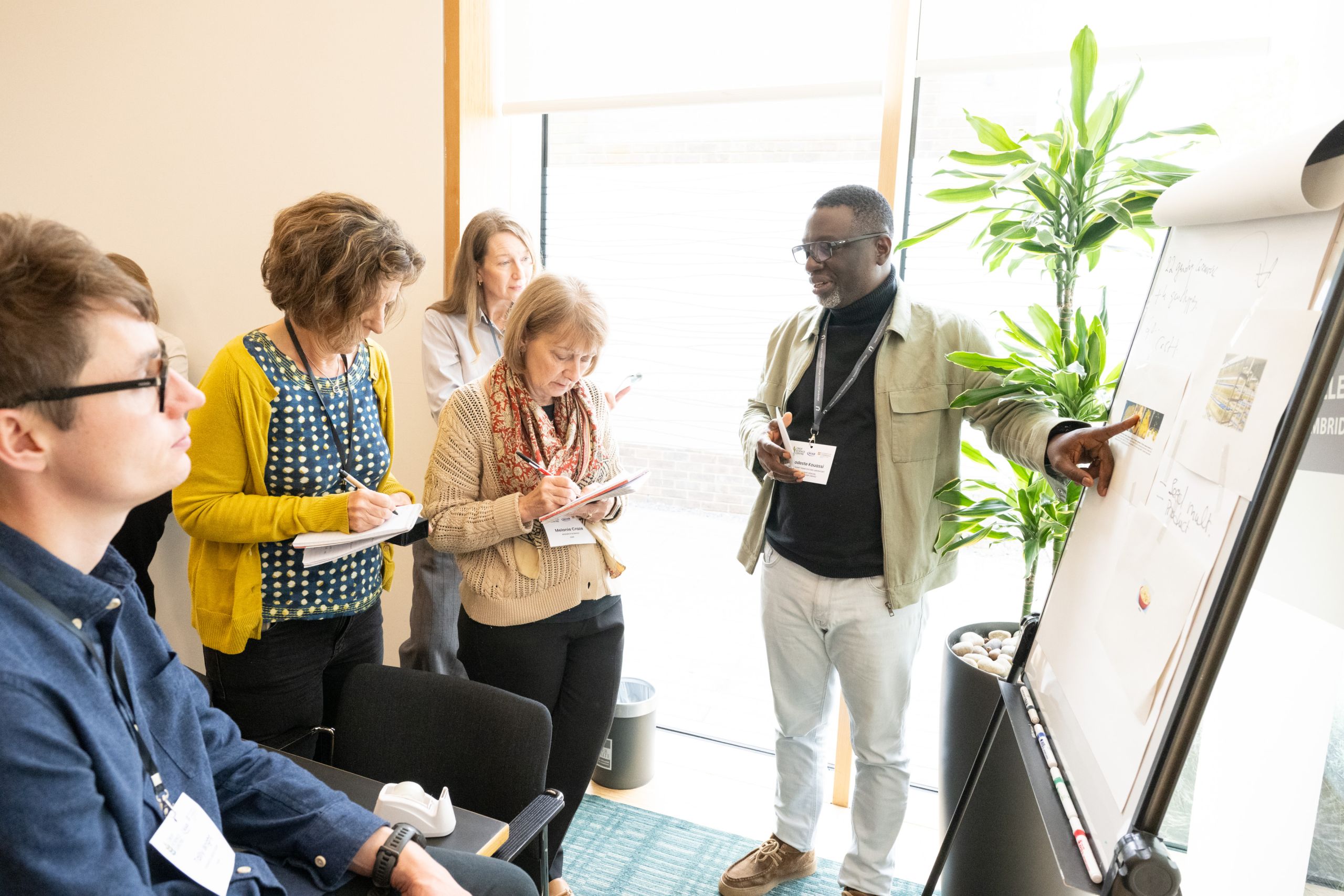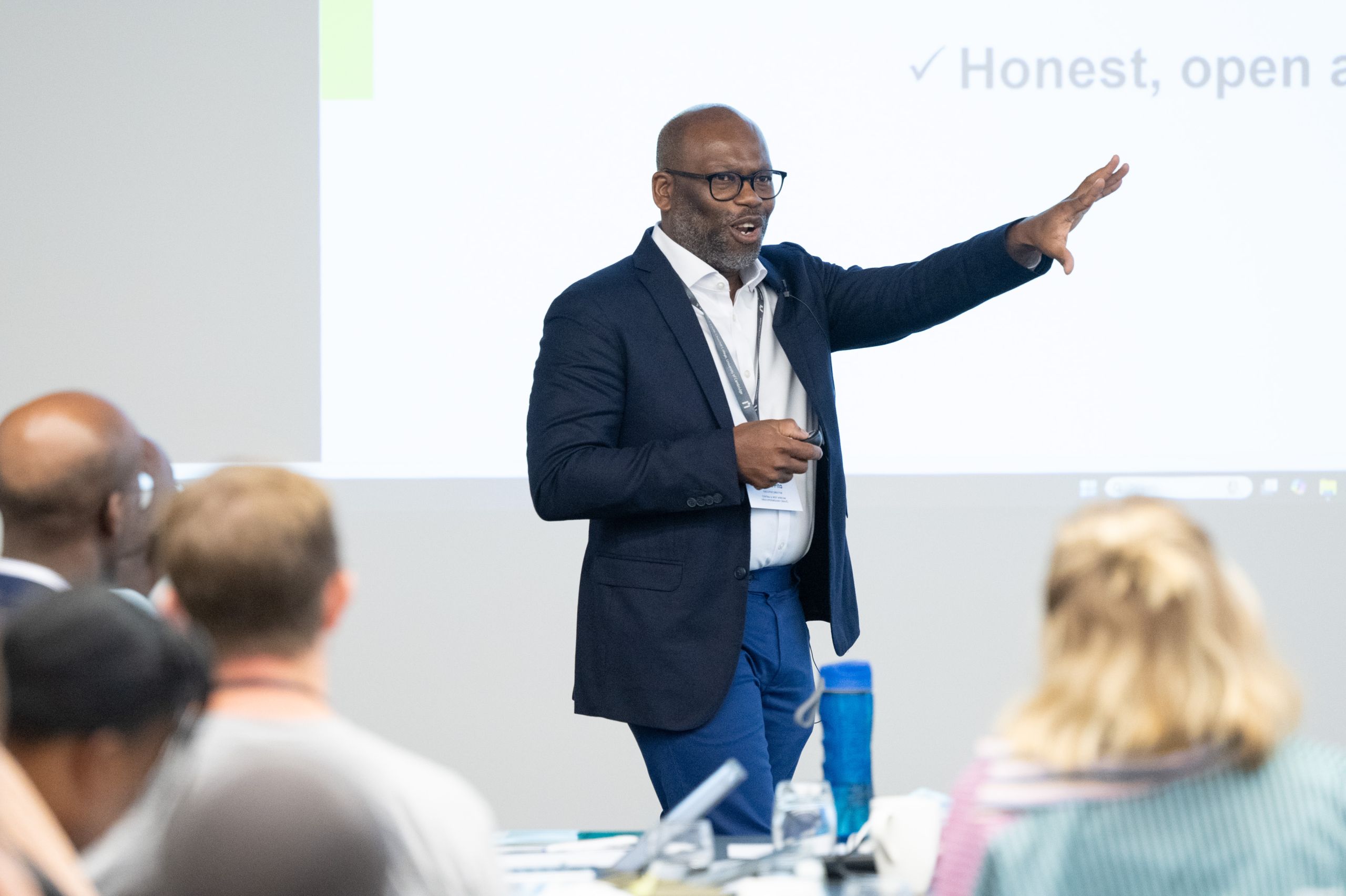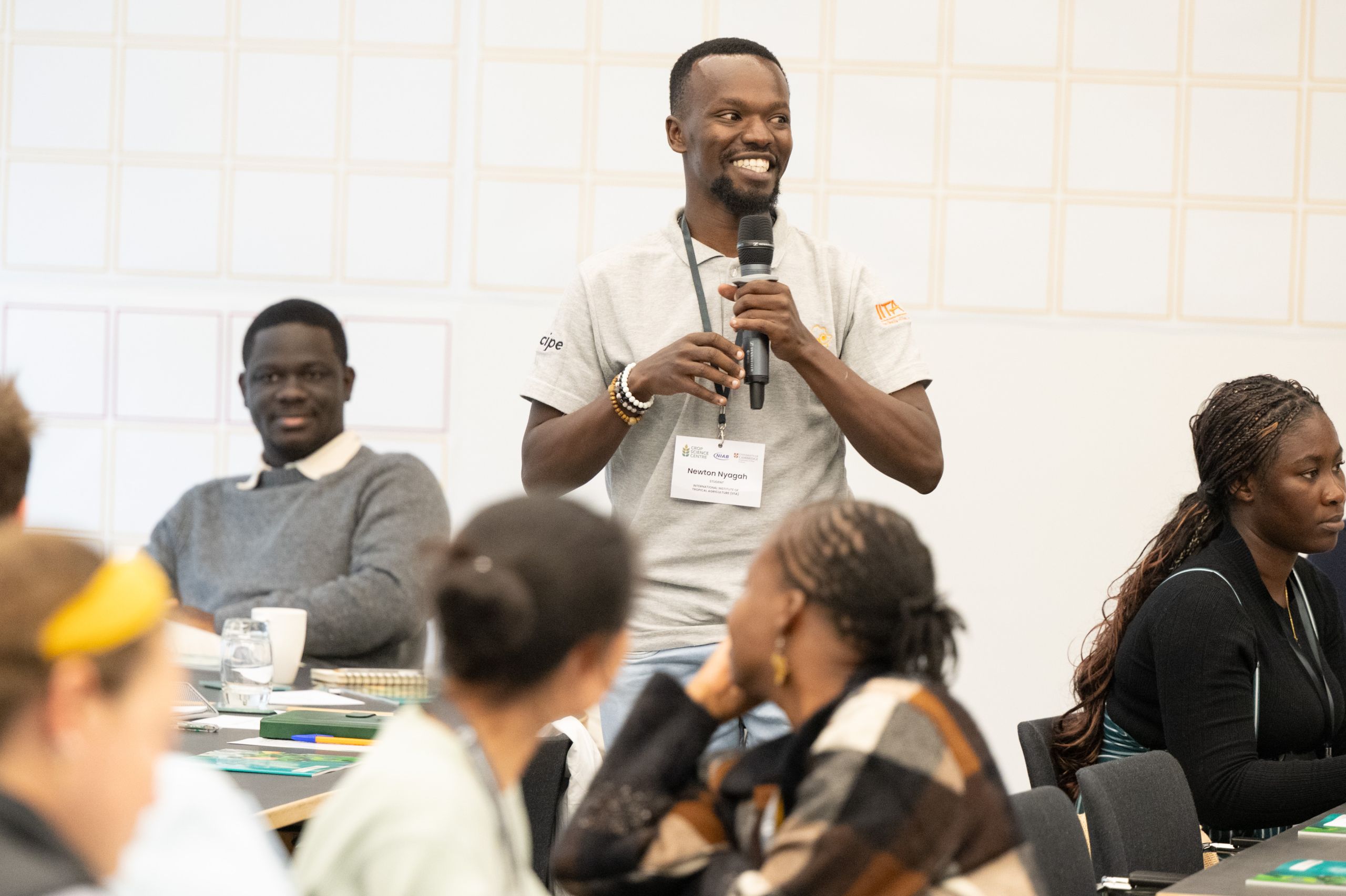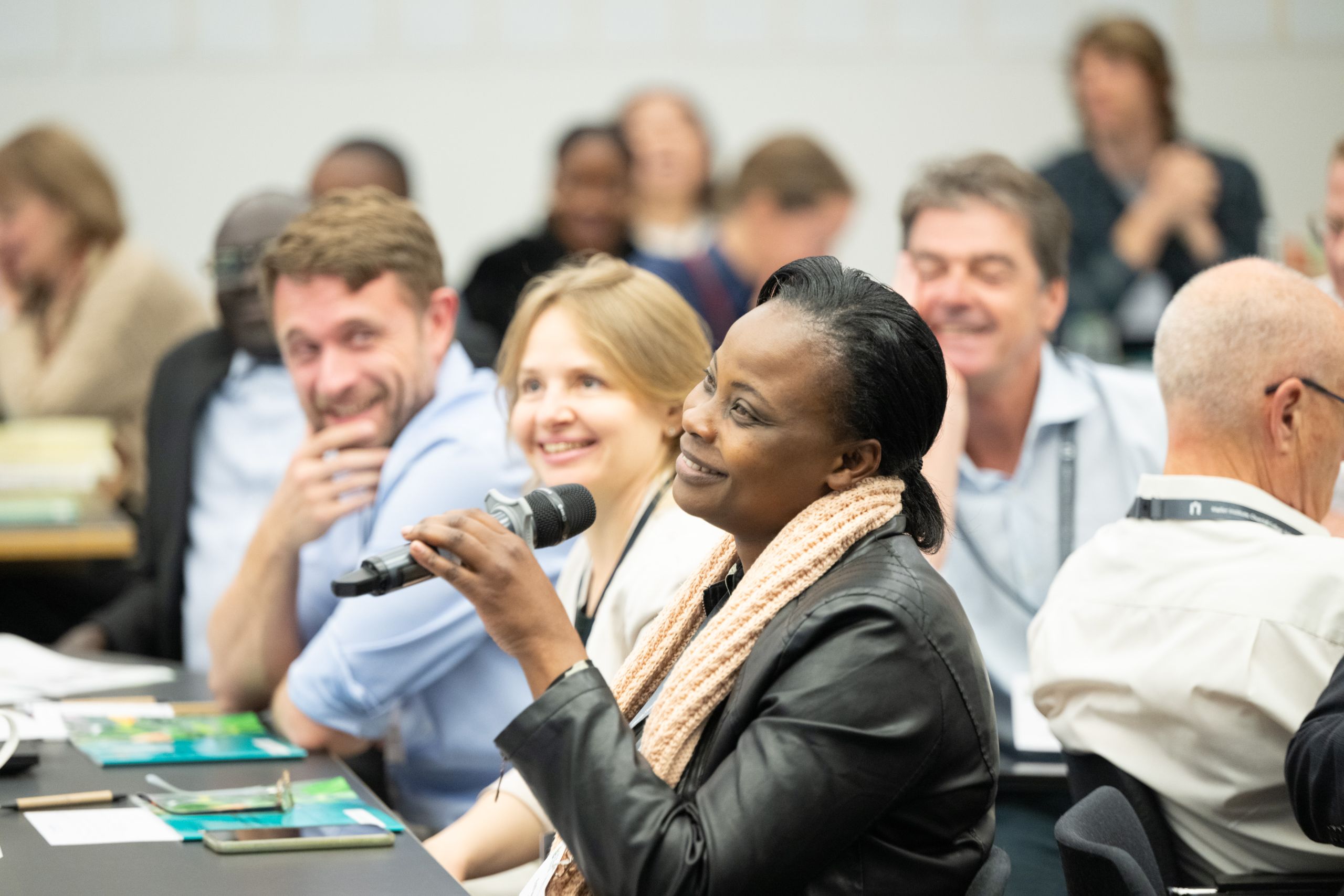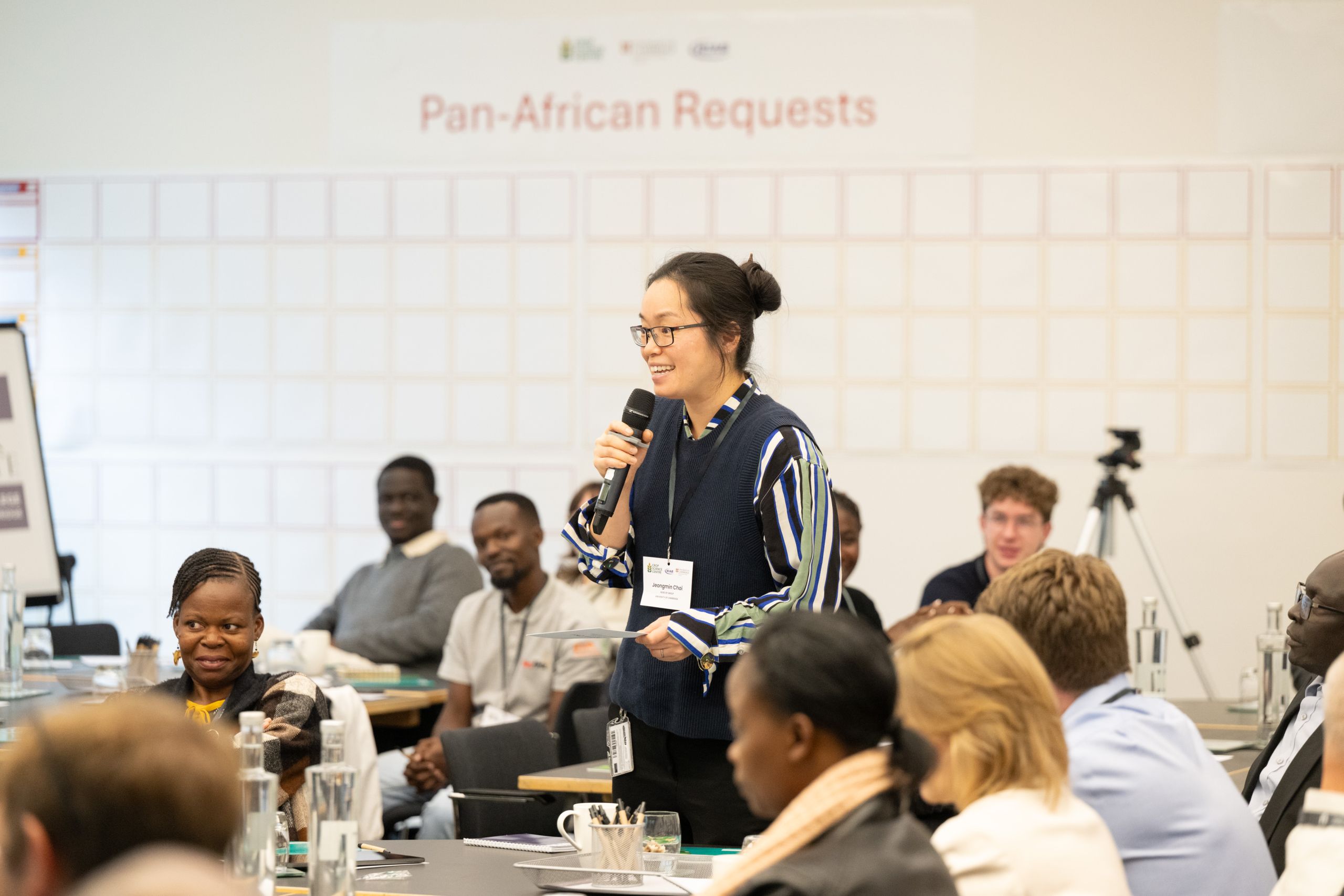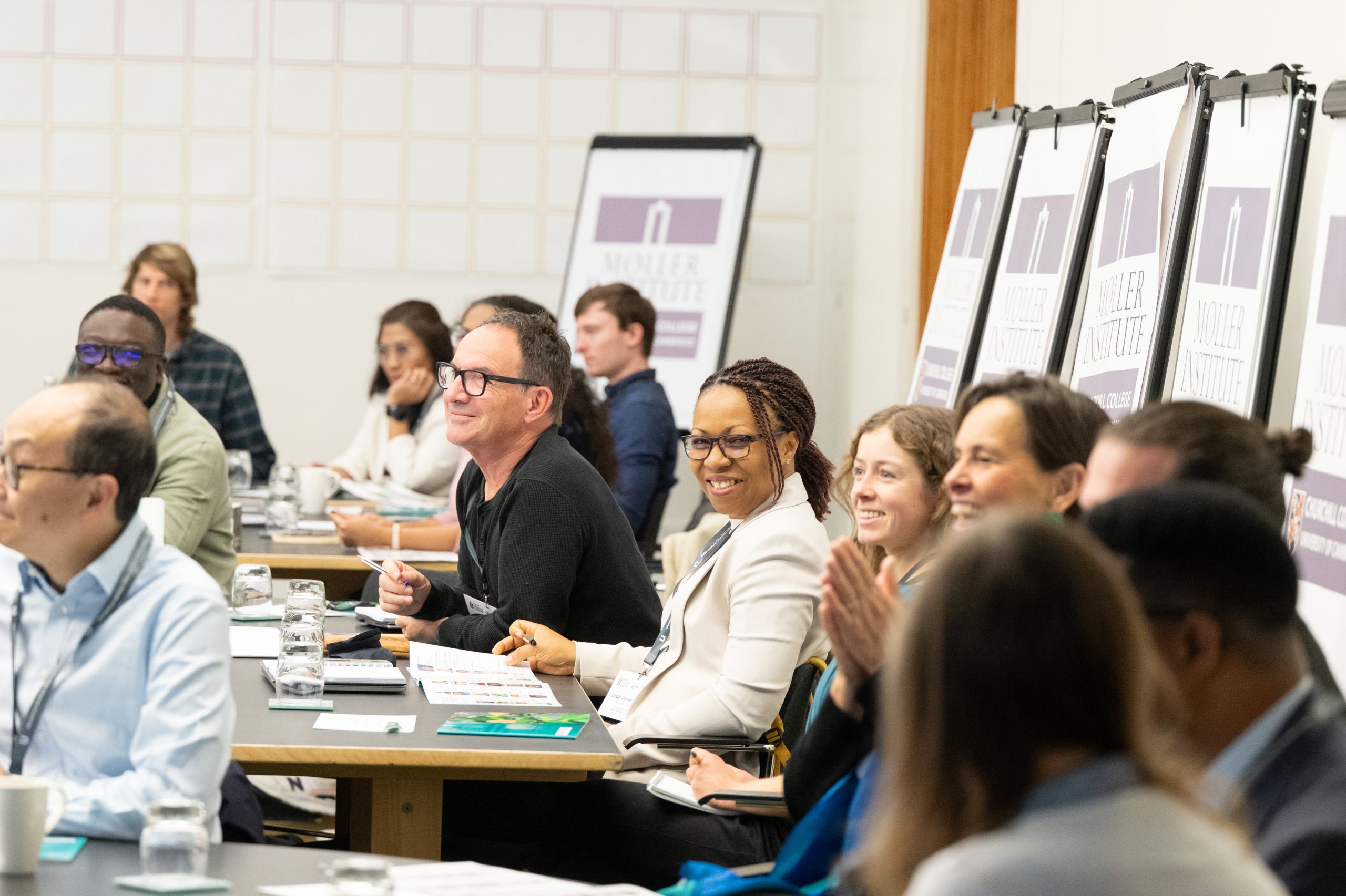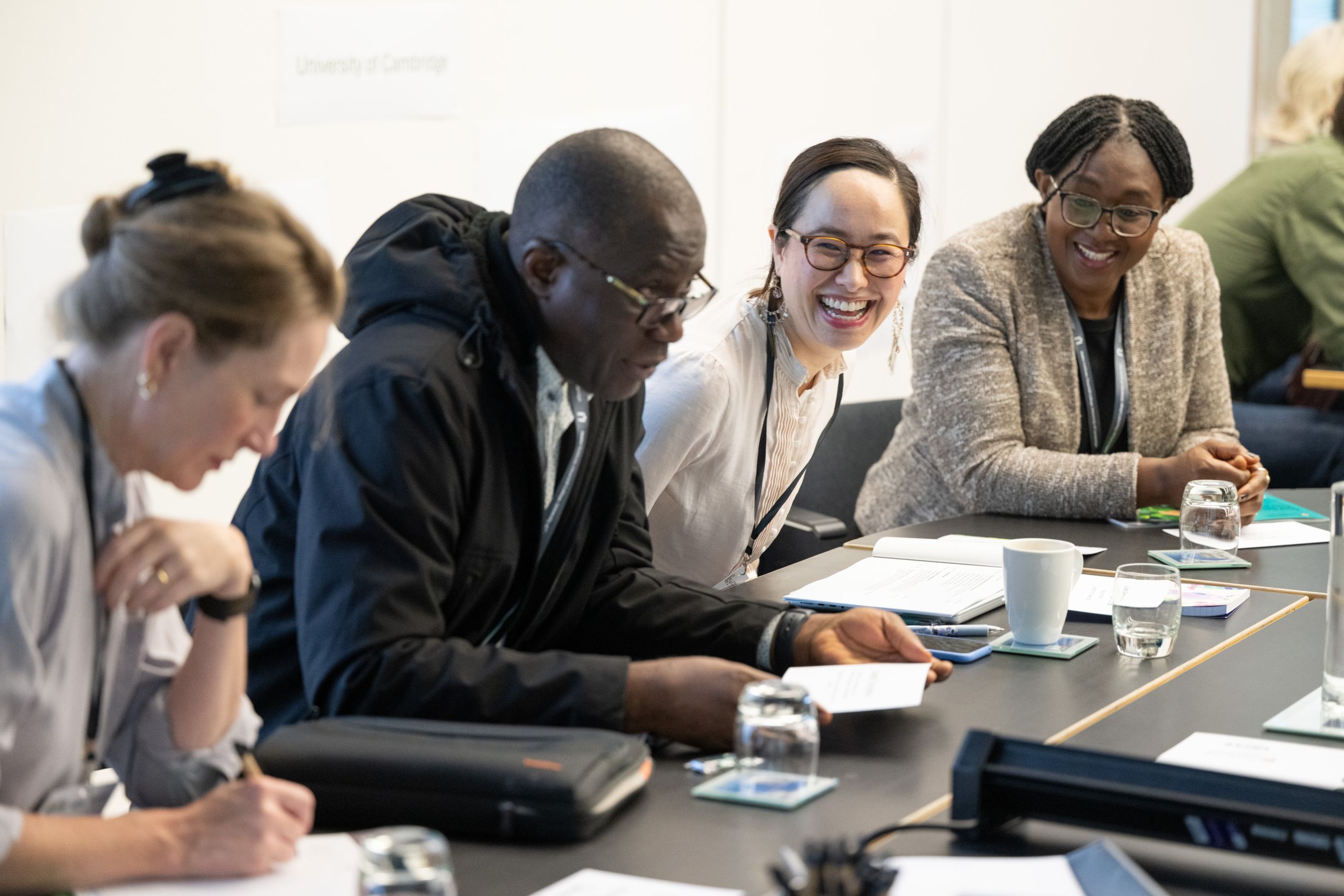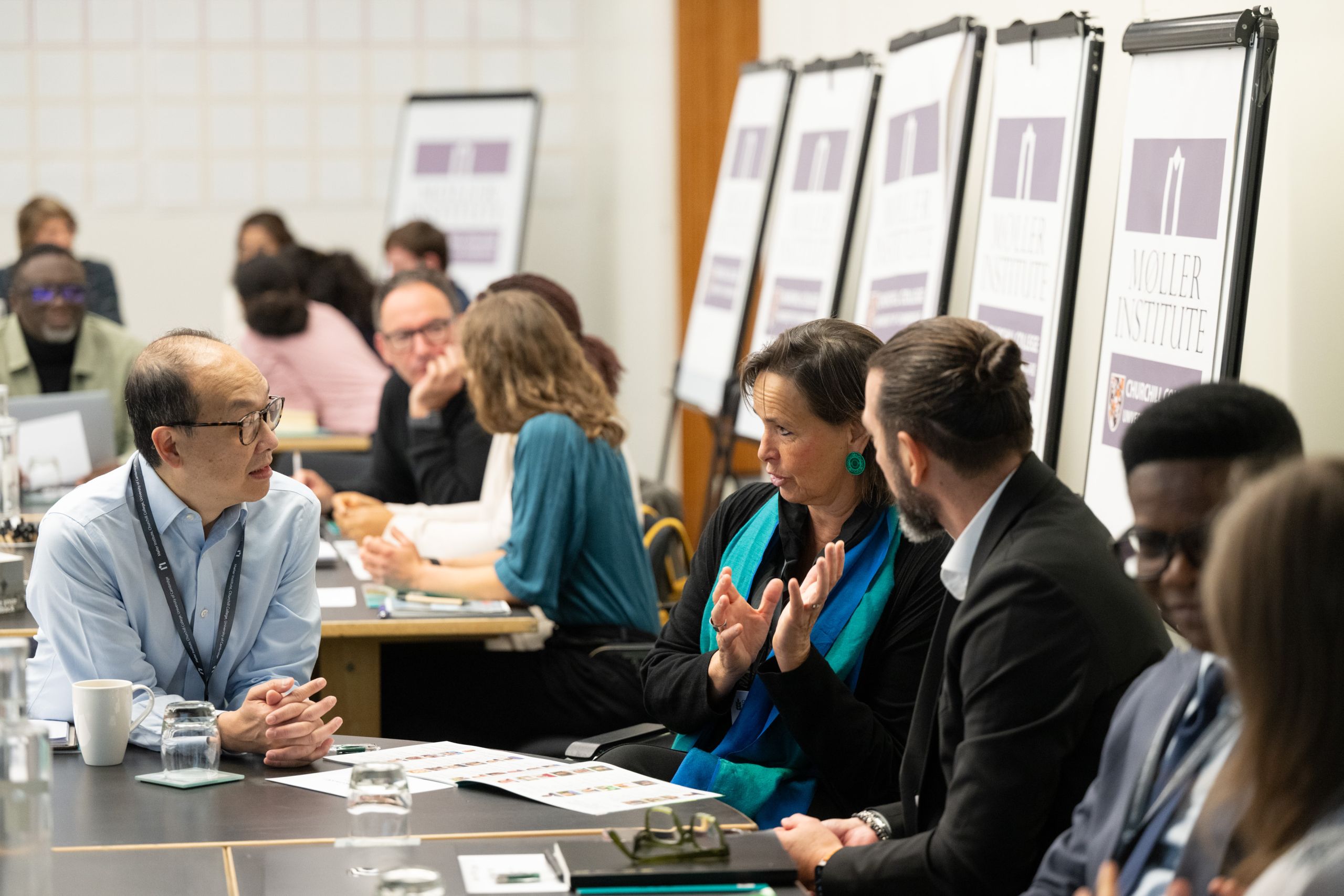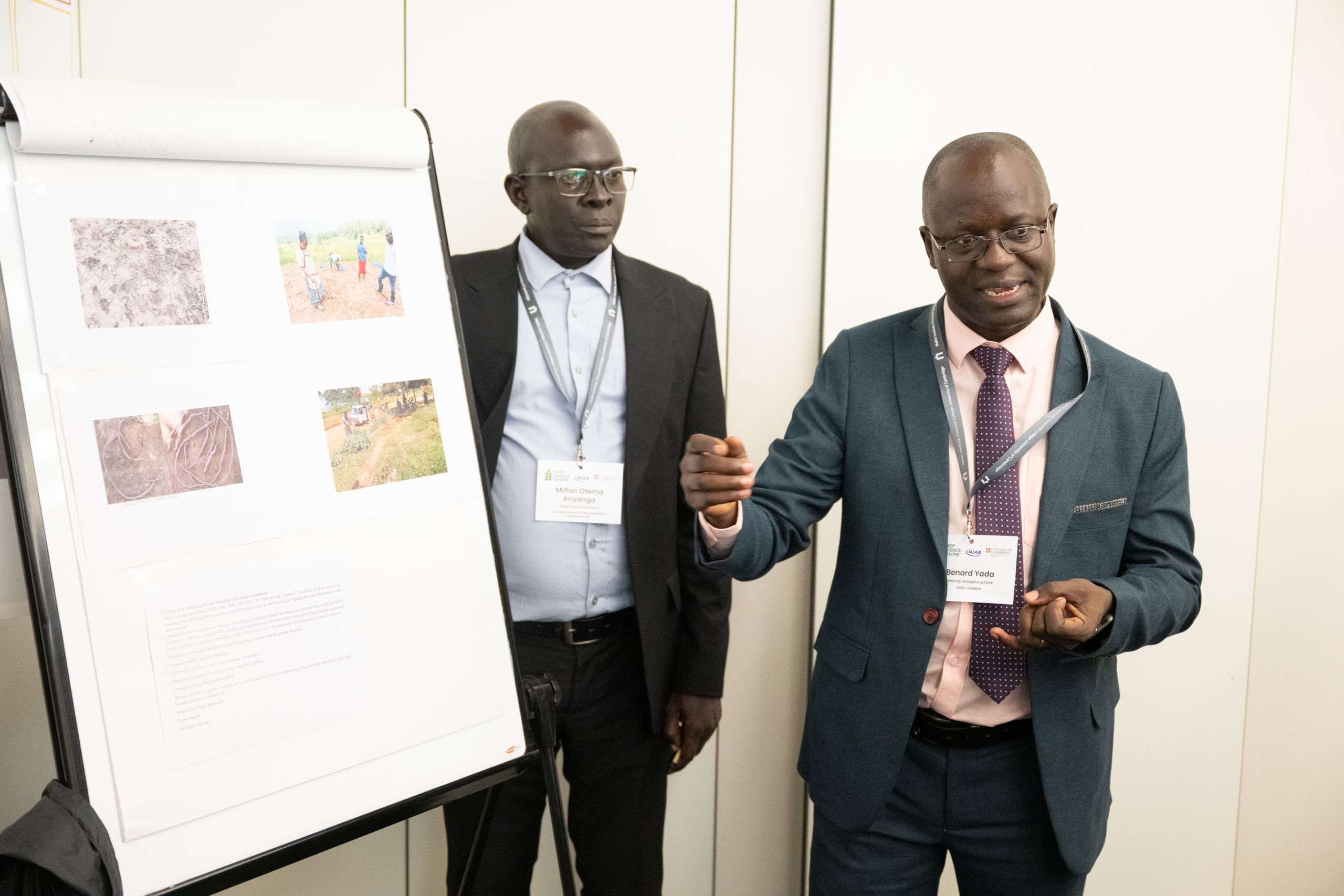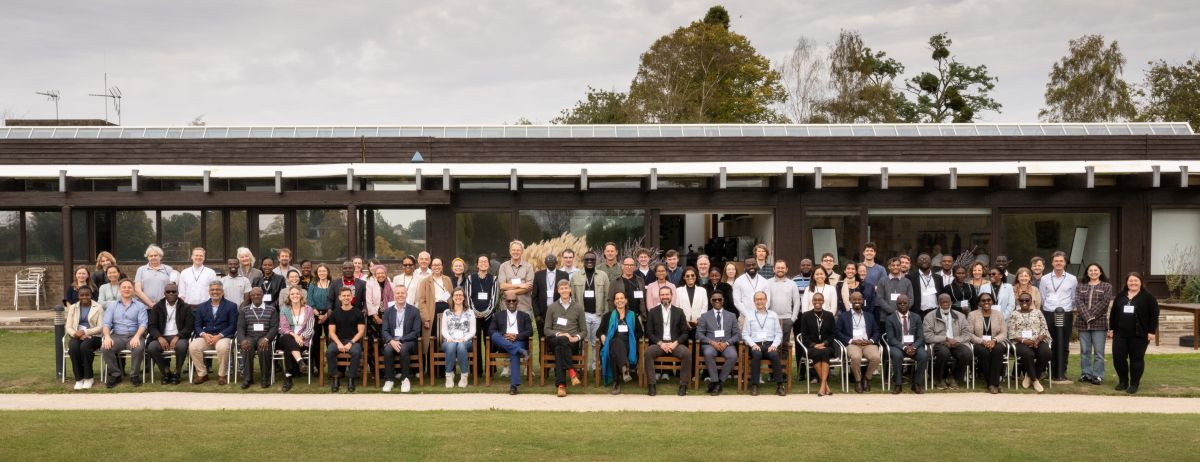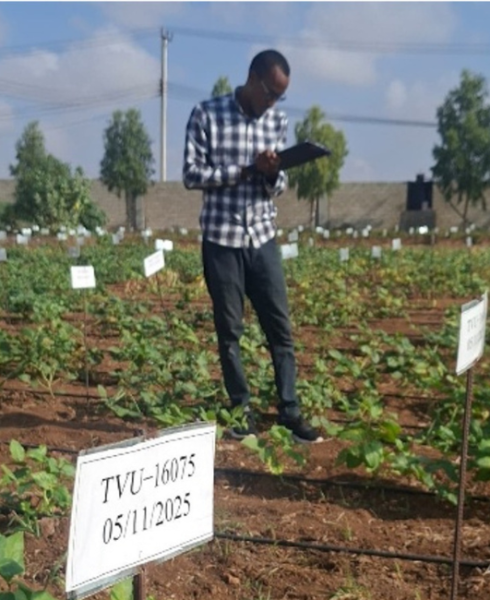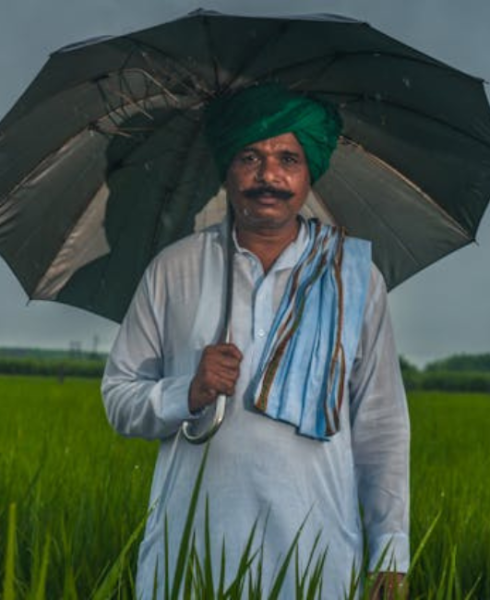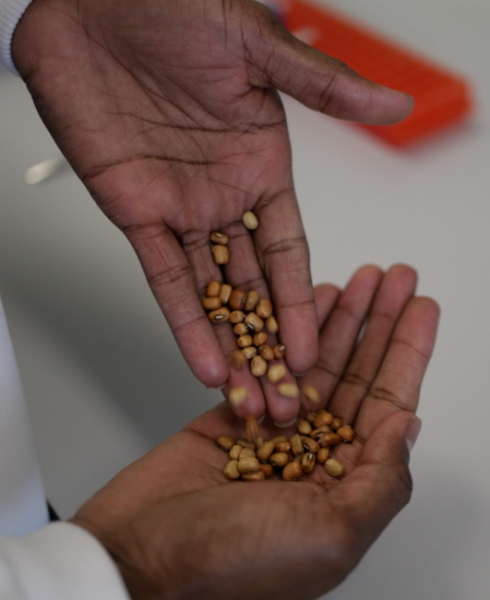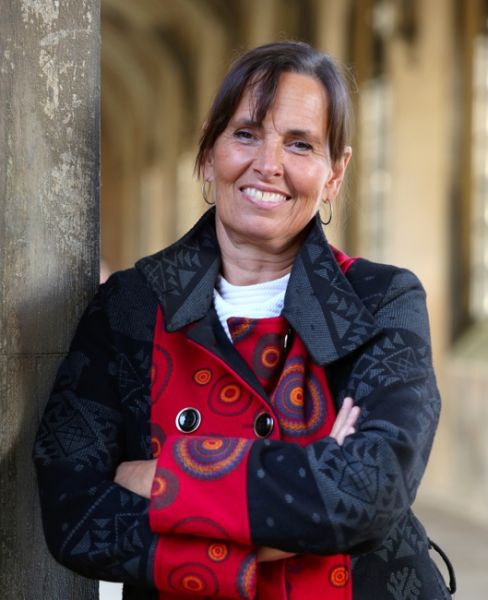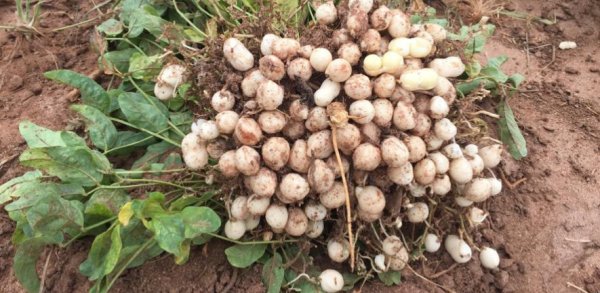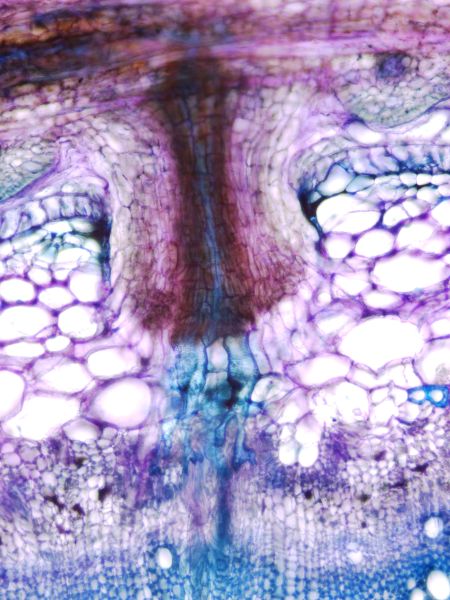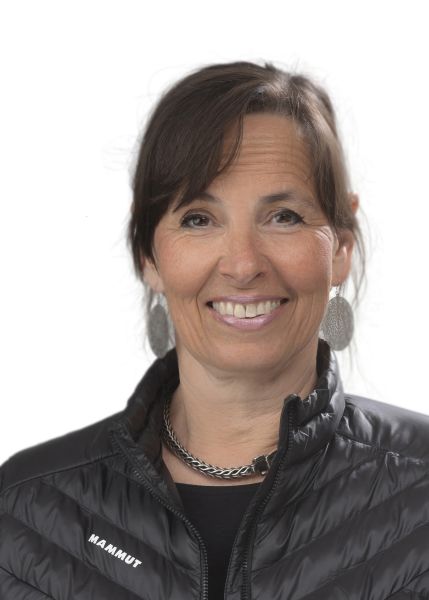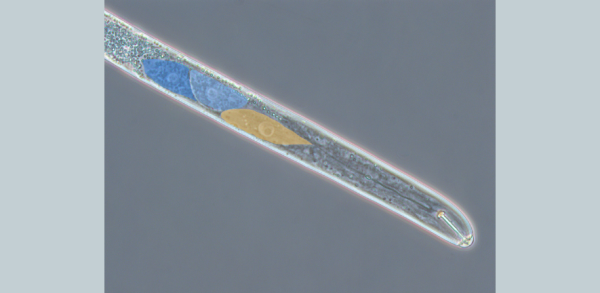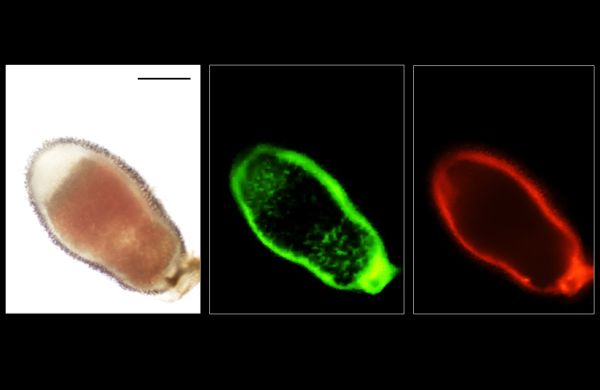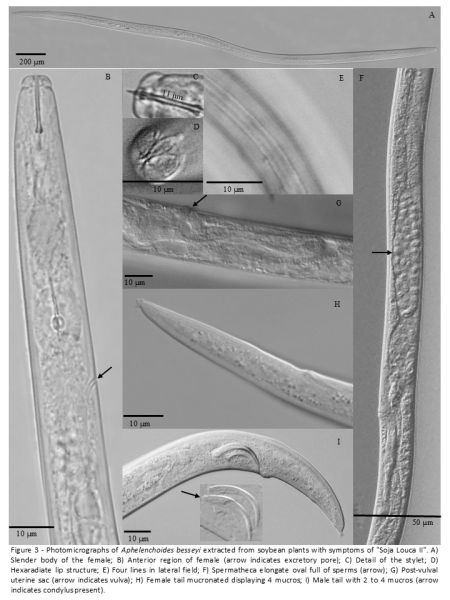The Crop Science Centre (CSC) International Partnerships event 2025 brought together partners and collaborators from around the world to celebrate scientific progress and explore the challenges and opportunities of translating discovery science into impact in the field.
The event took place on 2-3 October 2025 at the Møller Institute, Churchill College, University of Cambridge, and highlighted the importance of international partnerships in translating world-class science into solutions for farmers.
The meeting brought together over 100 scientists, breeders, funders, and partners from Africa, Asia, Europe, and the United States for two days of dynamic discussion, collaboration, and planning for the future of impact-driven agricultural science with an emphasis on Sub-Saharan Africa.
Cambridge is renowned for its excellence in fundamental science, and the gathering emphasised that translation of this science is harnessed in collaboration with international partners. Together, participants explored how research can move beyond the laboratory to deliver lasting impact in the field.
Building momentum for impact
A central theme of the meeting was the recognition that scientific excellence alone is not enough. Achieving real-world impact requires enduring partnerships, shared vision, and the courage to co-create research agendas across disciplines and geographies.
“This event was about more than sharing research, it was about building trust and relationships, lowering the barriers to integrating the work of scientists and breeders which is ultimately the route to impact,” said Christian Rogers, Head of International Partnerships at the Crop Science Centre and one of the main organisers of the event.
“By bringing together scientists, breeders, and funders from across the world, we are building the networks necessary for discovery in plant science to become real solutions for farmers and communities,” he added.
“Delivering impact from scientific discoveries is at the heart of our mission at the Crop Science Centre. We aim to design science for impact from the very start – science that speaks to the realities of farmers in Africa and Asia, delivered through enduring collaborations that transcend individual projects,” said Professor Uta Paszkowski, Acting Director of the Crop Science Centre and head of the Cereal Symbiosis group at the Department of Plant Sciences, University of Cambridge.
“Our global partnerships are key to delivering this, and we hope that this event has been an opportunity to kindle new connections, see fresh opportunities, and to imagine together how the power of plant science, harnessed through strong global partnerships, can address some of the world’s most urgent challenges.”
“We were also honoured to welcome representatives from many of the funders and partners whose vision and support make this work possible, as well as the many teams across the University of Cambridge who sustain and extend these global partnerships, including Cambridge Africa, the Mastercard Foundation Scholars Programme, and the Development and Alumni Relations office.”
Highlights of the programme
The event combined plenary talks with highly interactive formats designed to deepen connections and surface new opportunities.
Participants were invited to be bold in their conversations, open in their requests for collaboration, and generous in offering support.
The breeder’s panel was an opportunity for African and global breeders to share the challenges of bringing new varieties to farmers and provide insights into how scientists might best design their work and traits to integrate with breeding programmes in African crops.
A series of stories on the road to impact included African leaders sharing inspiring journeys towards real-world impact. This included Justin Pita from WAVE (the Central and West African Centre for Viral Epidemiology), Côte d’Ivoire who has established partnerships across 10 central and west African countries monitoring and responding to virus epidemics in cassava – and Chiedozie Egesi, the Executive Director of NRCRI in Nigeria sharing long experience leading cassava, yam, sweet potato and banana breeding programmes.
Other sessions included:
• Project highlight presentations in the form of pair talks between African and European partners, showcasing scientific progress and opportunities for translation.
• A funders’ panel exploring how strategic investment can accelerate the path from discovery to impact.
• A challenge and offer exchange, where participants articulated the collaborations, resources, expertise, and opportunities they need to advance their projects, and identified where they could support others.
• Flip-chart discussions and project deep dives, which enabled smaller groups to share emerging research, identify synergies, and map opportunities for collaboration.
The event also included opportunities to experience Cambridge’s cultural heritage, with guided walking tours, punting on the River Cam, and college dinners. These informal gatherings allowed participants to strengthen relationships and build the trust that underpins successful international partnerships.
Images: Delegates at the CSC International Partnerships event 2025. Photo credits: Alastair Fyfe.
